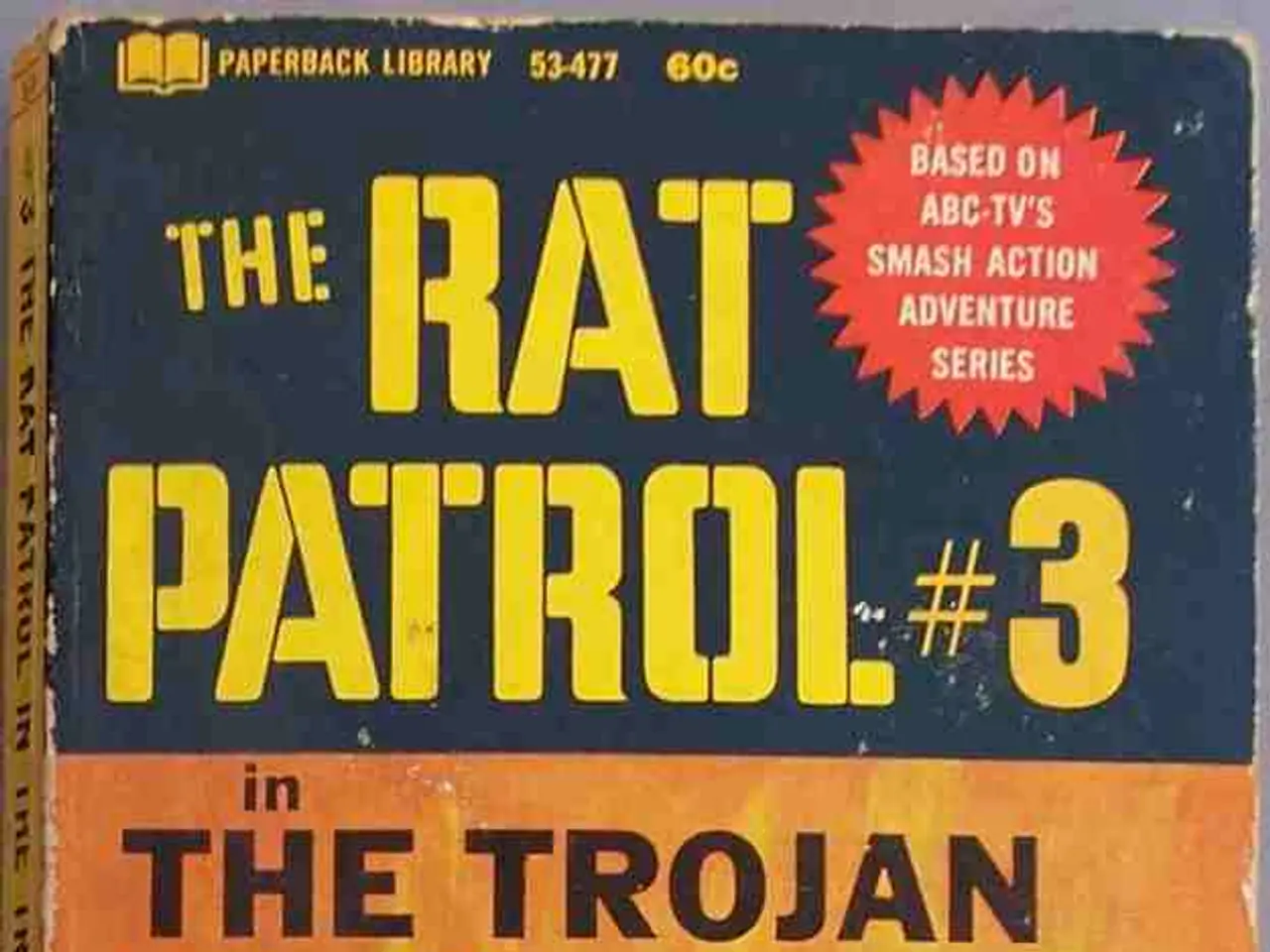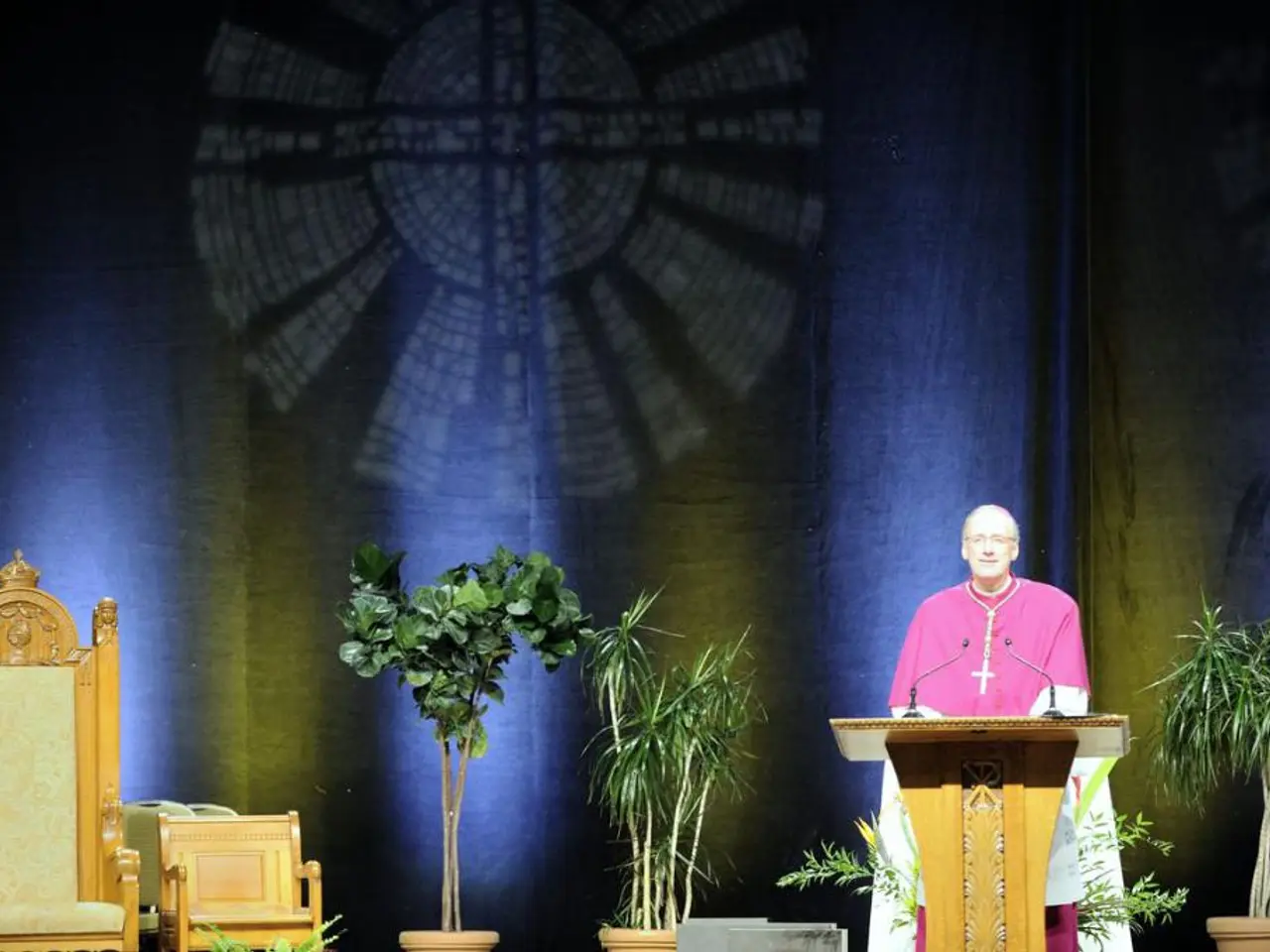It's a Showdown! Celebrity Influence and Political Power
Famous personalities, social media influencers, and the American voting process under spotlight
Trump versus Harris, a tight race, and every vote counts. But let's not dwell on the main contenders; it's the supporting stars we're interested in. These celebrities take a stance on the political chessboard, showcasing their power, range, and repercussions.
In the blue corner, Taylor Swift, Obama, Eminem and even Bruce Springsteen are rallying crowds for the Brat-summer-Harris ticket. But what about Trump's team? Elon Musk, Tucker Carlson, Kanye West, and Russell Brand, the born-again Christian, lend a hand. Harris may have the numbers, but is she winning in terms of caliber of celebrity support? Elon, with his on-off billionaire status, could be a swaying factor – if cash is king, then wealth certainly counts!
However, do these household names truly hold sway over the electorate? Can mixing these brands inspire affection from one to another? Campaigns crave endorsements, viewing them as magic tickets that suddenly open the floodgates of votes. But are these stars powerful enough to change minds? In politics, only two factors truly matter – turning out the vote and swaying the undecided.
Do Celebrities Ignite the Vote?
Indubitably! Some do it better than others. When Taylor Swift or Obama endorses a candidate, it's not just visibility that's boosted, but a sense of urgency that urges followers to register. This is particularly true among younger voters who may otherwise remain apathetic. Swift's 2018 endorsement, for example, ignited a surge in voter registrations, mainly among first-timers. Her fanbase, passionate and vocal, often takes her messages to heart, disseminating them virally across social media and inspiring peers to participate. This energetic force is undeniable, but it's not a universal panacea. The opposite effect? While celebrity endorsements can invigorate the base, they don't necessarily persuade the undecided. In some instances, involvement can be perceived as elitist, creating resistance rather than conversion.
A study from the Journal of Political Marketing corroborates these findings. Celebrity endorsements bolster visibility and excitement surrounding a campaign, but they predominantly activate people who already lean toward a candidate or party, rather than converting the undecided.
In essence, celebrity endorsements in politics mirror dynamics in brand marketing: consumed products can feel more validated by an endorsement, yet seldom rely solely on a celebrity's opinion to make a new decision.
Does Size Matter?
Size matters, but degree and authenticity also play important roles. Smaller nano-influencers, typically those with fewer than 10,000 followers, can be far more potent at swaying the undecided. These internet community pioneers aren't just content creators; they establish genuine connections with their followers, acting like friends and family rather than untouchable figures. These relationships ensure deeper trust and persuasion.
Trade-offs and Risks
Rubbing shoulders with other brands always comes with a price. Some aspects of one brand will permeate another, particularly when both appeal to the public. When both parties are admired, it works advantageously, but when any side falters, the partnership can sour. Recall the instances when brand-celebrity collaborations soured, and public opinion toward the brands plummeted along with their endorsees. Russell Brand's endorsement of Trump's campaign is a prime example. While it amplifies Brand's reach, it could alienate moderate Republican supporters. Conversely, Elon Musk's association with Trumpian MAGA politics may tarnish his global brand image. In this instance, Trump stands the vampire, feeding off Elon's popularity, while Elon could be seeking regulatory softening for his self-driving cars in the next presidential term – the game of politics!
In conclusion, celebrity endorsements can tip the scales in favor of political candidates, humanizing figures and inciting excitement among supporters. However, their effectiveness hinges on many factors, including alignment with candidate values, the endorsement's authenticity, and the endorser's credibility with target voter groups. The real secret? Seeking out relatable micro-influencers, who connect with local communities and have built strong, authentic relationships with their followers, can yield better results than broadcasting messages through one-size-fits-all national ads. As with political campaigns, the association game in both politics and marketing is nuanced, requiring careful thought, strategic calculation, and a thorough understanding of the target audience.
- Celebrities, such as Taylor Swift and Barack Obama, are using their influence in the political landscape, lending support to candidates like Harris, showcasing their reach and impact.
- On the opposing side, Elon Musk, Tucker Carlson, Kanye West, and Russell Brand offer backing for Trump's campaign, contributing to the diverse array of celebrity involvement in politics.
- While these household names might bolster visibility and excitement for political campaigns, their endorsements often activate supporters who already lean towards a candidate, rather than persuading the undecided.
- Additionally, the power of celebrity endorsements is mirrored in brand marketing, where consumers may view endorsed products as validated, but seldom rely solely on a celebrity's opinion to make a new decision.
- In contrast to large-scale celebrity endorsements, smaller nano-influencers, with fewer than 10,000 followers, can be more effective at swaying the undecided, as they establish stronger, more authentic connections with their followers.
- Collaborations between celebrities and political candidates come with risks, as any negative associations could impact both parties, potentially damaging the brand image of celebrities like Russell Brand and Elon Musk.





